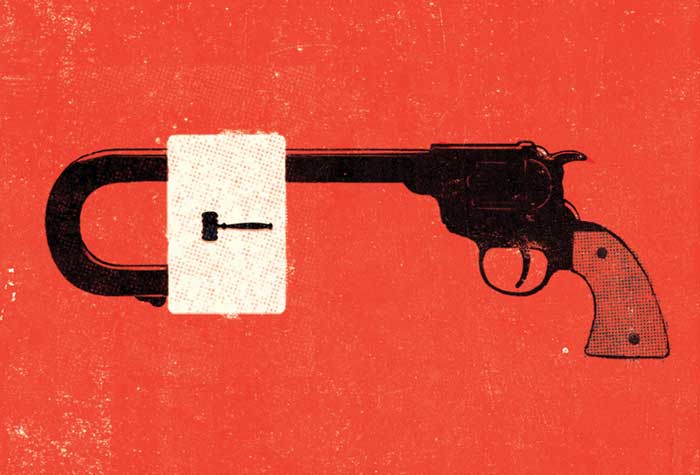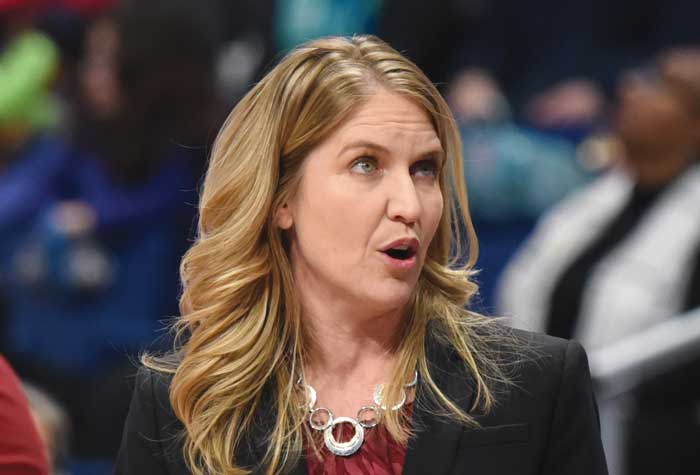
Photo: Marilyn Hesler for Syracuse University
Meet the Schiller Institute’s New Boss
In May, the renowned civil and environmental engineering scholar Laura J. Steinberg became the inaugural Seidner Family Executive Director of the Schiller Institute for Integrated Science and Society, Boston College’s new multidisciplinary center of science and research focused on energy, health, and the environment. Steinberg comes to BC from Syracuse University, where she held multiple leadership positions and advanced the school’s research mission. The Schiller Institute is the centerpiece of the 150,000-square-foot integrated science and engineering facility that’s slated to open in late 2021 and will usher in a new era of interdisciplinary collaboration and research. “I love the fact that woven into the fabric of Boston College is a mission for public good, for common good. That is front and center for the University, and that’s exactly what the Schiller Institute is about,” said Steinberg, whose roles at Syracuse included interim executive director of the Center of Excellence in Environmental Energy Systems; director of the university’s Infrastructure Institute; dean of the College of Engineering and Computer Science; and special assistant for strategy to the vice chancellor for innovation and strategic initiatives.
Boston College Magazine recently talked with Steinberg about her plans for educating the next generation of science leaders.
What attracted you to Boston College and the Schiller Institute?
The issues that the Schiller Institute is devoted to—energy, environment, and health—are topics I’ve been interested in for a very long time. They are essential to the future of the earth and of ourselves for generations to come. I really believe in the power of different perspectives applied to problems—not just working across the sciences, but adding humanities and social sciences and the professional schools and gathering all of the ideas from these areas together. That’s what I’ve done my whole life. Let’s say you asked me, Laura, what job would you want at a university? The answer has always been, bring together interdisciplinary groups to solve big problems—and then this job came up.
The mission of the Schiller Institute is to use science and technology to search for solutions to society’s most pressing challenges. Where will you start?
I want to hear from the faculty about what motivates them, what they’re most concerned about, and what they want to work on. Climate change is one challenge. There are science and engineering questions and also societal ones, like how to meet the needs of climate change refugees. Equally important to address is how we can help alleviate poverty and inequity. Related, of course, are public health issues that threaten people around the globe. As a university dedicated to the common good, we have a responsibility to address these problems.
When did you first know you wanted to pursue a career in engineering?
I grew up in New York City and then moved to New Jersey. So, I saw a lot of how infrastructure made life possible. I was mystified about how these structures worked from a technological perspective and a science perspective, and I was also amazed at the lives they enabled. Only when I was a senior in high school did I understand that that translated into civil engineering.
What has been your research focus?
A lot of my work has been about how engineering connects to community, people, and government policy. If an infrastructure system fails, what are the repercussions that occur in neighborhoods and in networks of individuals and organizations? And how can we build resilience in communities so that doesn’t happen?
What accomplishments are you most proud of?
We revamped and strengthened the College of Engineering and Computer Science at Syracuse University—we hired thirty-plus faculty members, many of them women. We really diversified the faculty. The pedagogical culture became much more student-oriented and active-learning-oriented. We added several entrepreneurial activities. Students now have a richer and more personalized experience. And we reinvigorated the research enterprise with new faculty and initiatives. The other thing I’m proud of is that we got the Infrastructure Institute at Syracuse up and going. It’s making the public and decision-makers more cognizant of how to build socially responsible infrastructure. I also care about the people I’ve helped—the faculty members that I hired and mentored, and helped with proposals and answered questions about how to be successful within the academic world. And the women that I mentor as part of the ELATES program at Drexel University and the engineering summer camp I created for middle school girls are super important to me.
Why is diversity in science important?
For a long time, the sciences have been, for one reason or another, heavily white and male. All different kinds of biases have come into play that have reduced the chances for people with more diverse backgrounds to participate fully. There has been conscious and unconscious bias in who gets hired and who doesn’t get hired, and how a tenure package is reviewed. Bias affects the students’ experiences, too. The Schiller Institute wants to be at the forefront of ensuring equal access to the rewards that a career in science can provide. That’s one of our priorities. Not only in hiring and support for our students, but in the kind of environment that we create.
What tools do the next generation of science leaders need?
Students have to be able to think and act creatively, so we need to give them experiences and challenges that allow them to mine their own creativity. They also need literacy in the broad topics that science is going to be addressing, as well as litearcies in technology and in how to explain these ideas to people who aren’t scientists. I think we have to encourage an empathy that we haven’t always thought was part of science and engineering education. And then we have to give them a sense of the responsibility to consider the consequences of what they work on—to look beyond the immediate question they’re delving into or the design they’re creating and consider how it will affect life going forward. 


 print
print mail
mailv1c-640x480.jpg)


